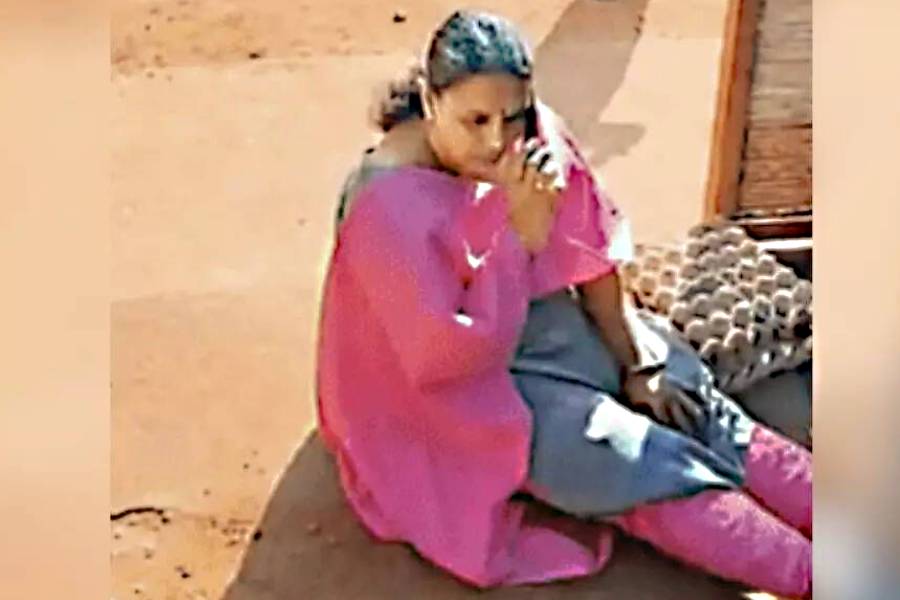

To put it bluntly, why not hang, say, 10 or 20 rapists by way of sending out a message that this crime against women will not be tolerated, especially in cases of aggravated or gang rape, which occur far too often in India?
Surely, Gopal Subramanium cannot be against the death penalty in principle since he was the chief prosecution lawyer who pressed successfully for capital punishment to be imposed in the case of Mohammed Ajmal Kasab, the lone survivor among the Mumbai terrorists of November, 2008?
'I did (ask for the death penalty for Kasab) because in my view it was one of those rarest of rare cases which needed the death penalty, particularly in terrorist acts of this kind,' Subramanium says. 'In the Indian context it would be viewed as proportionate to the crime committed. I was the special public prosecutor in the Supreme Court and that was a case which I did for a rupee as a matter of national service because after all it was a country which was attacked.'
In contrast, 'a gang rape would be a more aggravated form of rape where you could look at the maximum scale of punishment but short of death — that is, if the victim lives'.
Subramanium's work on child trafficking was one of the reasons Justice J.S. Verma had wanted him to be a member of the panel which took only 29 days to submit its 600-page report on how the criminal law should be strengthened in the aftermath of the December 2012 gang rape and subsequent death of a physiotherapist in Delhi. The other member of the panel was (retired) Justice Leila Seth, novelist Vikram Seth's mother.
Walking with Subramanium along the embankment by the river Thames, far from the hurly burly of Delhi, it is easier to discuss the consequences of the Delhi gang rape in calmer fashion.
London seems peaceful at noon. We are not far from Whitehall, the heart of the British government. Number 10 Downing Street is a five-minute walk away. Subramanium, one of India's most senior Supreme Court advocates who was solicitor general (2009-2011) and chairman of the Bar Council (2010-2011), has been staying at the Royal Horseguards Hotel in Whitehall.
He is in London because he has become an associate member at barristers' chambers where his skills as a neutral arbitrator in commercial disputes between India and the UK will be valuable. He is also expecting to pick up a professorship teaching law at a British university.
Unusually for an Indian, Subramanium has good things to say about others, even in private conversation. Both Verma and Seth were 'magnificent', he confides.
He praises the group and individuals who gave evidence to the Verma committee, especially the feminists who surprisingly argued against the death penalty for rapists.
Subramanium, who will also be teaching at Delhi University, will have quite a fund of stories, anecdotes and reasoned arguments to offer his pupils.
Speaking Tamil as his mother tongue, Subramanium, now 55, was born in Bangalore, metaphorically with a legal brief in his mouth. 'Both my parents were lawyers and I had the opportunity of seeing great lawyers — M.C. Setalvad, C.K. Daphtary, Niren De.'
He went to St Xavier's School in Delhi, and got his law degree in Delhi University — just like his daughter, Gauri, 29, and son, Giriraj, 25, who did their masters in Cornell and New York universities, respectively, and are also lawyers today.
While working on the Verma report, he managed only three hours of sleep a night but would occasionally read a book on psychology for light relief — 'I am very, very fascinated by psychology and, if I had a chance at a second life, I would be a psychiatrist'.
The only person he took into confidence was his wife, Geeta. She hails from Kerala, studied history in Delhi and is a voracious reader, 'much better read than me' — which is saying something.
'It was she who actually helped me understand how women's position in India is completely different from the position of males. She started deconstructing my own beliefs and I put on the new lens which she offered: how does a woman actually think? What is her condition? What does she look at? How does she perceive discrimination at home? How does she perceive the subtle signs of greater importance being given to a male child — in dress, in buying pencils and small little things? It was she who literally gave me the insight into starting this work.'
I suggest many Indians would want judges to hand out exemplary punishment to stem what appears almost a rape epidemic.
'Exemplary punishment is a phrase which means different things to different people,' he counters.
He did not think it would be right for judges to be given such extraordinary powers, 'in the context of a very strong plea before us by the women of India — 'Please don't impose the death penalty'. Their thinking was we are sharpening the divide by asking for death.'
Subramanium ponders the fundamental question of crime and punishment.
'What is our idea of punishment? It has a lot to do with our understanding of criminology and in particular the philosophy behind punishment. There is a distinction between reformation of human character and the extinction of human life which happens by decree of death penalty. Where you have instances of rape followed by murder, murder is the only offence which would qualify for a death sentence.'
He explains: 'In rape the person lives; yes, the person goes through enormous trauma, enormous decimation of personality; enormous pain and suffering. But it is also important to reinstate that person in society and personally as quickly as possible. We believe as a committee that suggesting a death sentence for rape would be entirely counterproductive. It was important for women to feel that they were capable of being empowered even after a rape was committed.'
Then he delivers the clinching argument: 'We made this value judgement on the basis of extraordinary judgements which we got from feminist thinkers and therefore we suggested that the problem is more societal.'
The Verma committee has proposed a bill of rights for women. 'Now I am so happy to tell you that it is being worked upon by the government as one of the most important agendas of governance. It will have a bundle of rights which will protect women in education, give them equality and give them access, free them from any kind of financial obligation, protect them before marriage, protect them in the workplace and on a continued basis serve them. If this bill of rights goes through it will change the landscape in India.'
In London, Subramanium has managed to visit the Supreme Court for a tour organised by its president, Lord Neuberger. He has also managed to pop into Waterstones to pick up a couple of paperbacks — the latest Dan Brown, Inferno, and On Becoming a Person: A Therapist's View of Psychotherapy by Carl Rogers.
At college, he had studied English literature before he took to law, hence Subramanium admits: 'I used to fancy myself as a creative English writer.'
He was influenced by T.S. Eliot's 1919 essay, 'Tradition and Individual Talent', and confesses: 'I used to look at his photograph and oil my hair and have the same kind of parting.'
If marooned on a mythical desert island, he would take the following: the works of Shakespeare, especially As You like It, Othello, King Lear, Hamlet and A Midsummer Night's Dream; poems by Yeats, Keats and Wordsworth; the novels of E.M. Forster; Somerset Maugham's Of Human Bondage; The Devil's Advocate by Maurice West; Sir Anthony Kenny's books on Western philosophy; and the music of the English composer, Vaughan Williams.
He also follows great British legal speeches and his taste in TV legal drama is also quite British: 'I watch Judge John Deed and Kavanagh QC.'
Legal battles bring us back to the Delhi gang rape trial, which has just concluded. Other things being equal, he would have preferred the trial of all accused of rape and murder to have been in open court.
'It is also important for people to see how justice is being administered,' he argues. 'Trial in camera must be an exception.'
As to whether attitudes to women will change in India, he says: 'I am very optimistic as far as the youth are concerned but I am not so optimistic about the older generation.'











